Legislative preview: Lansing tackles teaching, roads and inmates
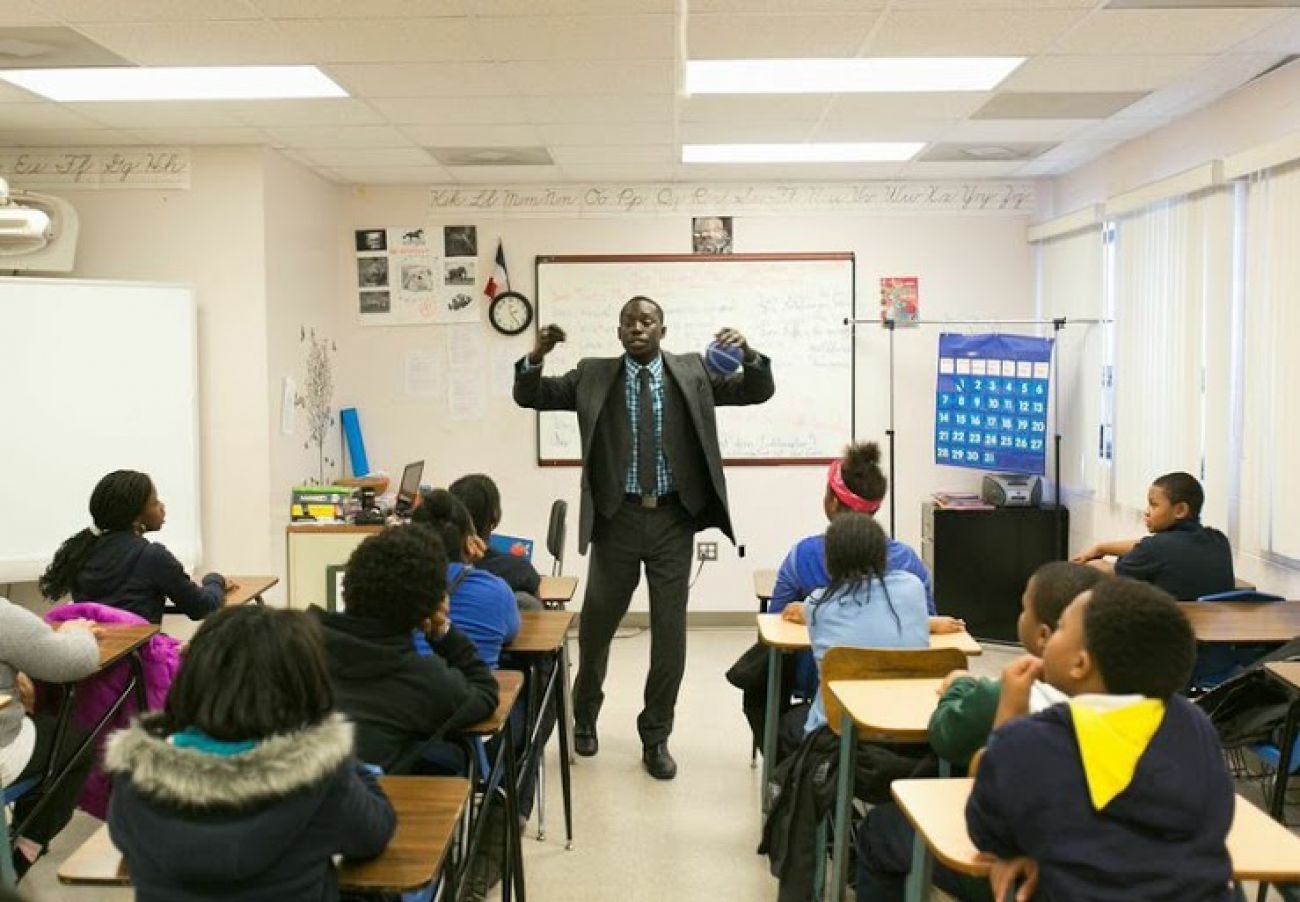
Teachers, drivers, third-graders and nonviolent offenders are all likely to get a lot of attention in Lansing in coming months, as the Michigan Legislature returns from summer vacation to tackle issues that could have major impact on many Michigan residents.
Here are some of the top issues legislators are expected to grapple with this fall:
TEACHER EVALUATION
Senate Bill 103 is the current incarnation of efforts to put into law a more comprehensive state policy on teacher evaluation.
The issue
Michigan’s 2011 teacher tenure reform gave school districts more flexibility to pick and choose which teachers to lay off, based on evaluations. But the state hasn’t yet told districts what those evaluations should look like – such as what tests should be used to measure student growth, and what other factors can be used. That’s a problem because school districts have no consistent, reliable system to determine which teachers are doing well and which are failing their students and need help to get better.
Who the bill impacts
About 100,000 state teachers and administrators, whose jobs and raises depend on their evaluations. But its most important impact is on every public k-12 student in Michigan, because teachers have the biggest influence on student learning of all factors inside school walls (though outside factors such as income can have an even bigger impact).
Why this fall
Without intervention from Lansing, the 2011 law requires that 50 percent of a teacher’s evaluation this school year will be based on student growth on tests. Most school organizations are uncomfortable with that high of a share being based on standardized tests, because of concerns that those tests do not accurately reflect classroom learning - a concern that is heightened by the fact that the state’s standardized test is new and may not have all the bugs worked out. Under the provisions of the bill now being considered, student growth would account for 25 percent of teacher evaluations, and even that wouldn’t kick in until the 2017-18 school year.
There’s also a matter of impatience in Lansing. It’s been four years since teacher evaluation was mandated, and almost two years since bills providing guidance on evaluations were first introduced. Legislators are ready to put the issue to bed and move on.
Pro
The debate is over whether the state will mandate evaluation models (or, at the least, determine whether a district’s model measures up), or allow school districts have the final say on how they evaluate their own teachers. The current version of the bill, sponsored by Sen. Phil Pavlov, R-St. Clair, allows school districts to use whatever evaluation model they want.
Pavlov told Bridge in June that he didn’t think “bureaucrats” in Lansing should determine how local districts evaluate their teachers and administrators. “If you put the Department of Education in charge of this for all school districts, you are setting yourself up for failure,” Pavlov said. “The Department of Education is not equipped to handle teacher evaluation.”
Bridge wrote about the issue, in “How a single, powerful senator killed serious reform of teacher evaluation.”
Con
Allowing every school district come up with its own system is how the state ended up with, as recently as 2012, 99 percent of teachers being rated effective or highly effective.
Some legislators prefer a teacher evaluation bill like one that came close to being passed last December, which mandated school districts choose from among several research-based evaluation models that have been shown to be effective in reliably evaluating teachers and helping them improve in the classroom.
Status
Pavlov’s bill passed the Senate and is now in the House education committee, where details are still being negotiated.
ROADS
The long, winding road, the highway to Hell, pick your own cliche, will continue in coming months, as legislators try again to find a way to fund the needed repair of Michigan roads.
The issue
Michigan’s roads are considered to be among the worst in the nation; probably not coincidentally, Michigan spends the least per capita on roads and bridges in the country.
Gov. Rick Snyder has been trying to increase funding for road and bridge repairs since 2011, with no luck despite widespread public support. It’s estimated that it will take at least $1.2 billion additional funding per year to get our roads and bridges in shape.
Who it impacts
Everyone! Michigan drivers spend an average of $357 a year on blown tires, bent rims and other repairs due to bad roads, according to an estimate by TRIP, a national transportation research group.
Why this fall
Despite their long record of failure on the issue, legislators continue to work to find a funding mechanism that can win enough votes to pass and that has the support of the governor. Leaders were working behind the scenes in August to find a solution, and have promised to try again this fall.
Pro
Michigan’s crumbling roads and bridges are a safety hazard and a drain on the pocketbooks of residents and businesses. And the roads aren’t fixing themselves. Each year lawmakers delay, the cost of repairing the roads rises by an estimated $100 million.
Con
Who’s paying for it? Michigan residents say they’re willing to pay more taxes to repair roads, but a ballot initiative that would have increased the gas tax to pay for repairs (along with other things) went down in flames in May.
Republicans haven’t been able to muster enough votes to pass a road funding bill that raises tax revenue without Democratic support; Democrats, accustomed to having little influence in Lansing because of their minority status, want concessions on other issues in exchange for their votes. The most recent effort put forth by the GOP called for $600 million in increased revenue from increased fuel taxes and registration fees, and another $600 million from existing general fund spending – without saying where that $600 million would come from. Snyder has said he’s uncomfortable diverting that much from existing funding.
Status
At this point, who the hell knows?
THIRD-GRADE READING
House Bill 4822 would put a statewide empahsis on early reading skills, through extra support for kids who are struggling, and by retaining some students in third grade who are well below grade level in reading.
The issue
Third-grade reading proficiency is widely viewed as an important indicator of future academic success.
That’s not a good sign for Michigan, which is 40th in the nation in third-grade reading proficiency rates.
The bill is patterned off recommendations made by a third-grade reading workgroup put together by Snyder. That report, which you can read here, and this year’s bill emphasize the importance of identifying struggling readers early and one-on-one instruction to help those students catch up.
Who the bill impacts
Students in early grades would get more reading instruction. Those who are struggling will get even more attention. Schools would get money for additional literacy coaches. Students who are still behind after that extra support would run the risk of being retained in third grade.
Why this fall
There’s already $100 million in the budget year that begins in October set aside for at-risk and K-3 literacy efforts. Schools are waiting to hear how that money can be spent.
Pro
Better readers in third grade pays dividends years down the road, in higher graduation rates and more adults with college degrees.
Con
More students will be held back in third grade because of poor reading skills. As currently written, third-grade students who are reading at a second-grade or lower will not advance to fourth grade unless they’re allowed to advance through passing alternative standardized tests or by presenting a portfolio of satisfactory classroom work. How many students will have to repeat third grade? Nobody knows, but Gary Naeyaert, of the Great Lakes Education Project, whose organization has supported this legislation for several years, said he expected the number being held in third grade would be 3,000 or less. That’s less than 3 percent of all third-grade public school students, but it’s also triple the number who are currently flunking third grade. Numerous studies have found that students who are retained in early grades are more likely to drop out of high school compared with students who strugged with reading in early grades and were not retained.
Status
A more punitive “read or flunk” bill, which would have held back 32,000 third graders who weren’t reading at proficiency levels and would have had a disproportionate impact on high-poverty school children, failed last year.
This year’s version, with its added emphasis on helping kids catch up in reading rather than holding them back a grade, has bipartisan sponsors, and has $100 million in funding for at-risk and k-3 literacy efforts already in the budget.
CORRECTIONS REFORM
A package of bills, including House Bill 4137 and 4138 would cut the number of inmates in Michigan’s prisons.
The issue
Michigan has 43,000 inmates in its prisons, costing about $2 billion a year, which is more than we spend on education. Other states, including Texas have made sizable cuts in their prison populations, saving money while also reducing recidivism, by locking up fewer nonviolent criminals.
Who the bills impact
As many as 10,000 prisoners could be released, under recommendations made by the bipartisan Citizens Alliance for Prisons and Public Spending. At a current annual cost to the state of $35,000 per prisoner, that could mean as much as $350 million in savings each year that could be spent elsewhere (such as road repairs).
Why this fall
Reform efforts have been percolating for years, led by former Rep. Joe Haveman, a Republican who was term-limited out of office last session. Prison reform now has growing bipartisan support both in Michigan and nationally. In Michigan, that has meant support from diverse groups ranging from the Mackinac Center to the ACLU, and sponsors on both sides of the aisle.
Pro
Snyder called corrections and sentencing reform “smart justice,” that can save the state millions by diverting nonviolent offenders to treatment and probation.
Con
Michigan Attorney General Bill Schuette led the charge against reform last year, warning that “violent criminals” could be released “back into our neighborhoods.”
Status
The bills have bipartisan support in Lansing and among some liberal and conservative advocacy groups, as well as the backing of the governor.
Michigan Education Watch
Michigan Education Watch is made possible by generous financial support from:
Subscribe to Michigan Education Watch
See what new members are saying about why they donated to Bridge Michigan:
- “In order for this information to be accurate and unbiased it must be underwritten by its readers, not by special interests.” - Larry S.
- “Not many other media sources report on the topics Bridge does.” - Susan B.
- “Your journalism is outstanding and rare these days.” - Mark S.
If you want to ensure the future of nonpartisan, nonprofit Michigan journalism, please become a member today. You, too, will be asked why you donated and maybe we'll feature your quote next time!


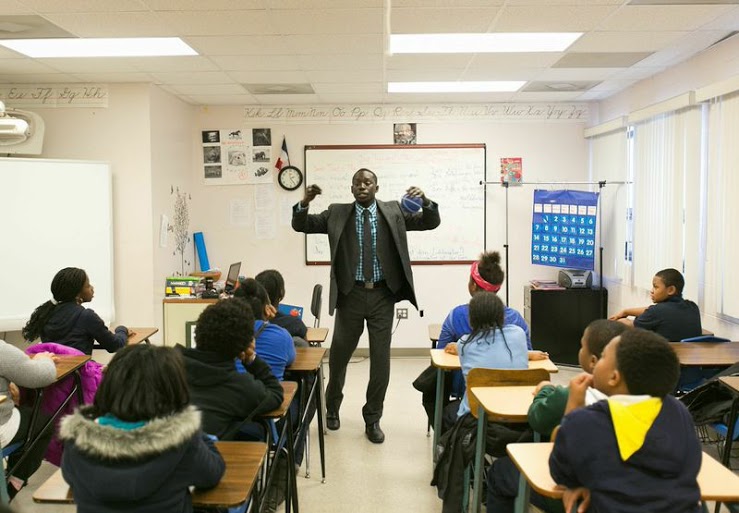 How teachers are evaluated, and whether struggling students in early elementary grades get more focus on reading, are two major issues expected to be debated in the Legislature this fall. (Bridge file photo)
How teachers are evaluated, and whether struggling students in early elementary grades get more focus on reading, are two major issues expected to be debated in the Legislature this fall. (Bridge file photo)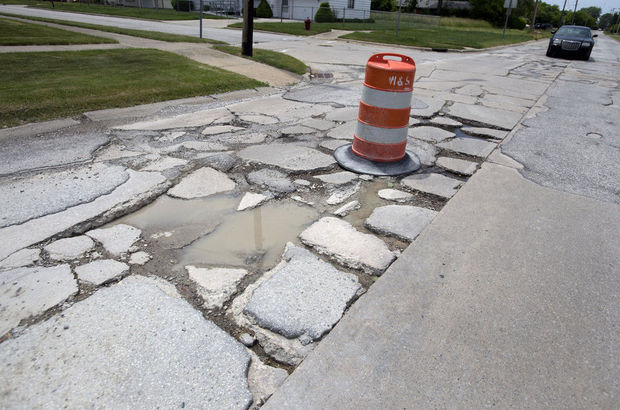 There is no dispute on the need for Michigan to devote up to $1.2 billion annually to fix its crumbling roads. But what the Legislature has yet to agree on is how much of that funding should come from new taxes.
There is no dispute on the need for Michigan to devote up to $1.2 billion annually to fix its crumbling roads. But what the Legislature has yet to agree on is how much of that funding should come from new taxes.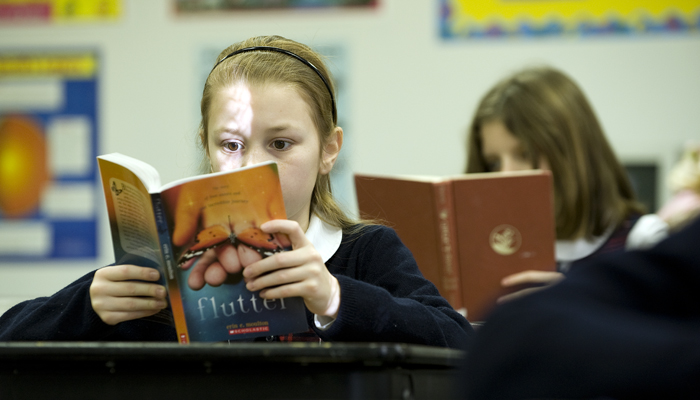 A bill that would provide more intensive focus and instruction for third-graders struggling to read at grade level. The measure has drawn more support since it was changed to place more emphasis on helping these students improve and less on making them repeat third grade.
A bill that would provide more intensive focus and instruction for third-graders struggling to read at grade level. The measure has drawn more support since it was changed to place more emphasis on helping these students improve and less on making them repeat third grade.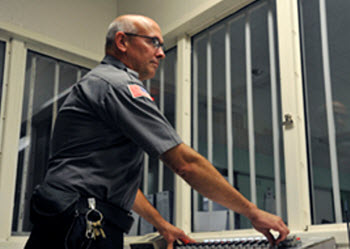 With more than 43,000 prison inmates, Michigan advocates on the right and left are joining forces this fall to find ways to reduce the state’s crowded, expensive prison population.
With more than 43,000 prison inmates, Michigan advocates on the right and left are joining forces this fall to find ways to reduce the state’s crowded, expensive prison population.
